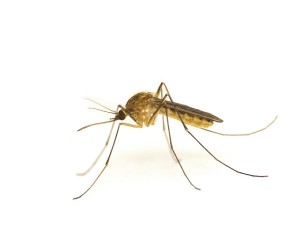 HYANNIS – A local entomologist is reporting that current conditions may result in another summer season on Cape Cod with an increased threat of mosquito transmitted viruses.
HYANNIS – A local entomologist is reporting that current conditions may result in another summer season on Cape Cod with an increased threat of mosquito transmitted viruses.
Cape Cod and much of Massachusetts was hit by a wave Eastern Equine Encephalitis last year with several human cases reported, including three deaths.
Bourne, Falmouth, Mashpee, Truro, and Wellfleet were communities on Cape Cod which saw a moderate EEE risk last summer and fall. The risk was higher for Southeastern Mass communities north and west of the Cape Cod Canal.
Gabbrielle Sakolsky, the superintendent of the Cape Cod Mosquito Control Project, said the amount of water on the ground this spring will most likely determine how widespread the threat of EEE may be later in the year.
She said the species of mosquitos that transmits EEE from bird-to-bird overwinters in swamp water.
“And the swamps all have water still this winter,” Sakolsky said. “It’s a concern.”
Sakolsky said the severity of the EEE threat for the region will depend on the amount of precipitation that falls through April.
Most mosquito species start to go through the developmental process again in early spring as days become longer and waters warm.
“We are going to wait and see what it is like then,” she said. “That’s when I would be really concerned.”
The region is in the middle of a EEE cycle, which typically lasts about three years.
Outbreaks of EEE usually occur in Massachusetts every 10-20 years. Prior to 2019, the most recent outbreak of EEE in the state began in 2010 and included nine cases with four fatalities through 2012.
“Based on the water in the swamps now, and the Eastern Encephalitis levels last year we are going to be looking at Eastern Encephalitis again this year,” Sakolsky said.
EEE virus particularly infects birds, often with no evidence of illness in the bird. Mosquitoes become infected when they bite infected birds.
Although humans and several other types of mammals, particularly horses and llamas, can become infected, they do not spread disease.
EEE is a very rare disease. Since the virus was first identified in Massachusetts in the late 1930s, fewer than 100 cases have occurred. Over 60 percent of those cases have been from Plymouth and Norfolk counties.
Cape Cod Mosquito Control Project staff are working through the winter.
“They are out right now brushing paths so they can get access to these swaps where we do treatments,” Sakolsky said.
“They are opening up pipes and ditches to make sure the water is moving, and making sure fish can move around if it is a habitat where there might be fish that need to get in for access to feed on mosquitos.”
She said staff are reporting water in a lot of places.
Although the winter has been mild, Sakolsky said it should not result in early activity for mosquitos.
Mosquitos spend their winters in diapause, which is a period of suspended development. Sakolsky said it is sort of a hibernation period for insects.
Mosquito development activity begins based more on the length of days than warmth.
“They are not yet thinking it is spring because the days, even though they are getting longer little by little, are not long enough yet for the mosquitos to change their behavior,” Sakolsky said.
There are some species that overwinter as adults. Sakolsky said she does receive reports from people who see them in their homes.
“Those species aren’t biting,” she said. “They are kind of in another type of hibernation but they are not actively biting.”























